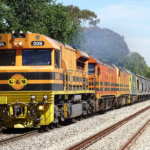How corporations are shifting pension obligations to insurers, leaving retirees vulnerable
- Pension de-risking is a growing trend where corporations transfer their pension obligations to insurance providers or other financial investors
- Insurance contracts are self-regulated, leaving them relatively free from any regulatory reign
- Pension de-risking strips retirees of their pension guarantees and exposes them to potential financial calamities
- Companies like General Motors, Verizon, Ford, Dow Dupont, and JC Penney have already transferred their pension obligations
- The Employee Retirement Income Security Act (ERISA) and the Pension Benefit Guaranty Corporation (PBGC) no longer apply once a pension is de-risked
- Retirees are left exposed to destitution if the insurers holding their pension assets go insolvent
- A bipartisan federal law, the Secure Act 2.0, is critical for protecting retirees and evaluating the negative impacts of pension stripping
Pension de-risking is a concerning trend where corporations transfer their pension obligations to insurance providers or other financial investors. This practice strips retirees of their pension guarantees and exposes them to potential financial calamities. Insurance contracts are self-regulated, leaving them relatively free from any regulatory reign. Companies like General Motors, Verizon, Ford, Dow Dupont, and JC Penney have already transferred their pension obligations, with transfers in 2019 and 2020 exceeding $25 billion each. The Employee Retirement Income Security Act (ERISA) and the Pension Benefit Guaranty Corporation (PBGC) no longer apply once a pension is de-risked, leaving retirees without crucial protections. If the insurers holding retirees’ pension assets go insolvent, retirees are left exposed to destitution. A bipartisan federal law, the Secure Act 2.0, is critical for protecting retirees and evaluating the negative impacts of pension stripping.
Public Companies: General Motors (GM), Verizon (VZ), Prudential Insurance Co. of America (PRU), Ford (F), Dow Dupont (Unknown), Federal Express (FDX), JC Penney (Unknown), Lockheed Martin (LMT), New York Times Co. (NYT), Sears (Unknown), United Airlines (UAL), Bethlehem Steel (Unknown), Silicon Valley Bank (Unknown), Signature (Unknown), First Republic (FRCB), Lehman Brothers (Unknown), Bear Stearns (Unknown), AIG (AIG), Enron (Unknown), Madoff Securities (Unknown), IBM (IBM)
Private Companies: undefined
Key People: Don Kaufmann (Board Member of the nonprofit Association of BellTel Retirees)
Factuality Level: 7
Justification: The article provides information about the practice of pension de-risking and its potential impact on American retirees. It includes examples of companies that have transferred their pension obligations to insurance companies. The article also mentions the lack of regulation in the insurance industry and the potential risks associated with pension de-risking. However, it does not provide a balanced perspective and focuses primarily on the negative aspects of the practice.
Noise Level: 7
Justification: The article provides some relevant information about the issue of pension de-risking and the potential consequences for retirees. However, it lacks in-depth analysis and fails to provide concrete solutions or actionable insights. It also repeats certain points and includes some irrelevant information about past financial crises.
Financial Relevance: Yes
Financial Markets Impacted: The article discusses the potential impact of pension de-risking on American retirees and the transfer of pension obligations to insurance providers and other financial investors.
Presence of Extreme Event: No
Nature of Extreme Event: No
Impact Rating of the Extreme Event: No
Justification: The article focuses on the financial impact of pension de-risking and the potential consequences for American retirees. While it does not describe an extreme event, it highlights the risks and lack of regulatory oversight in the pension industry.
 www.marketwatch.com
www.marketwatch.com 





